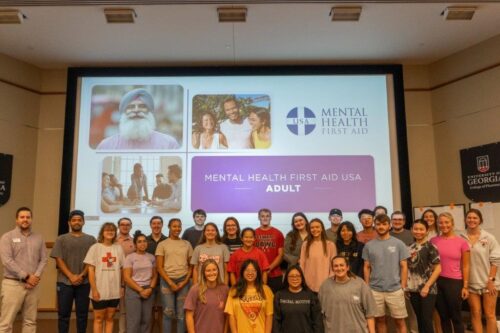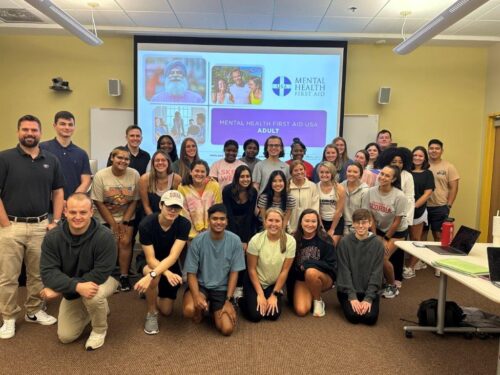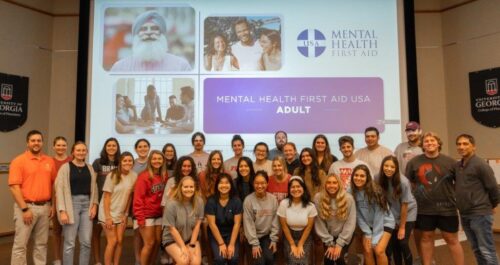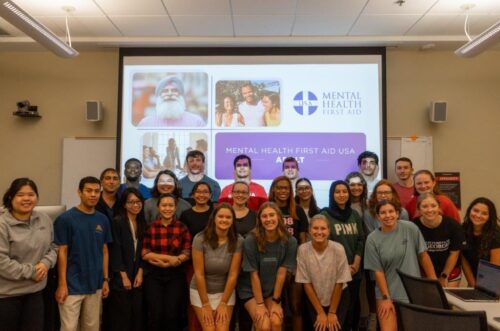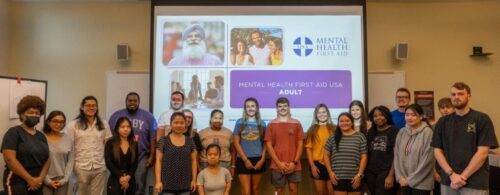Melting sunscreen, when lorazepam is dangerous, stopping staph, and more
19 Aug 2023
Posted by Andrew Kantor
Avoid lorazepam with cancer treatment
Patients getting cancer treatment are often given a bit of help relaxing, in the form of lorazepam. Bad idea, it seems.
A new study out of the American Association for Cancer Research found that people who took lorazepam “had a shorter progression-free survival than patients who did not.”
About 41% of pancreatic cancer patients take benzos, by the way, but not all of them are a problem —Xanax (alprazolam), for example, did not have that same effect. But “[P]atients taking lorazepam had a 3.83-fold higher risk of disease progression or death than patients who did not take lorazepam.”
And it’s not just pancreatic cancer:
[L]orazepam use correlated with significantly worse overall survival in prostate, ovarian, head and neck, uterine, colon, and breast cancer, as well as melanoma, with effects ranging from a 25% increased risk to a 116% increased risk.
Why is this? They think lorazepam may activate a protein called GPR68, “which promotes inflammation in the pancreatic tumor microenvironment, leading to increased tumor growth.”
The foundation at work
The Georgia Pharmacy Foundation provided Dr. Blake Johnson with the UGA College of Pharmacy a grant allowing him to teach Mental Health First Aid to first year pharmacy students.
As of today, a total of 138 of the 147 in the class have completed the training, which took place in Savannah, in Tifton, and virtually.
“Thank you and PharmWell for your investment in our students,” Blake said, “and the care you’ve put forward in providing mental health training to our cohort!”
Click any photo to embiggen:
The right sunscreen
Something to keep in mind as summers get hotter: That heat makes some sunscreens less effective.
Of the two types — chemical and mineral — mineral are a better option when it gets hot according to the American Academy of Dermatology. And the new ones don’t turn you white, either.
Chemical sunscreens can lose their filtering abilities when exposed to extremely high temperatures [above 90°F].
Extreme heat also means more sweating, and sweat can contribute to itchiness and rashes some people experience from ingredients in chemical sunscreens.
Pro tip: Don’t leave those sunscreen bottles in the sun, either. That can break down the important chemicals.
Covid boosters get thumbs-up
Preliminary testing by the companies found that both Moderna’s and Pfizer’s upcoming Covid-19 booster shots work against the new Eris and Fornax* variants that have been gaining steam around the world.
* We just heard about Fornax in the GPhA Buzz newsroom, too.
Flu and staph: Target the lungs, not the bacteria
Flu can lead to a staph infection, and that’s what’s especially deadly. But instead of trying to fight the bacteria, Mount Sinai researchers found a way to make sure the lungs can protect themselves.
It seems that the flu keeps the lungs from secreting a protective liquid layer; without that layer, the staph infection can take hold. So restoring the lungs’ ability to secrete that protection is a great way to prevent staph from taking hold.
How to do that? Glad you asked. Ivacaftor, the CFTR-activator drug — it keeps the flu from blocking the lungs’ secretions.
“[G]iving CFTR activator drugs to people with the flu who are at risk for a secondary staph infection might prevent staph infection from initiating, thereby preventing death from flu-staph coinfection.”
Of course this is all in mice, but as ivacaftor is approved and well-tolerated, it’s certainly worth considering.
Telehealth doesn’t mean more ADHD meds
Did you think the telehealth boom has been driving up ADHD med prescriptions? After all, those virtual docs must be prescribing them a lot more quickly than in-person prescribers, right?
Nope! When you look at actual data (as Epic Research did), the prescription-for-ADHD-meds rate was the same for docs in cyberspace and meatspace*.
Between the pandemic’s first year and March 2023, about 60% of visits for both virtual and in-person care resulted in a prescription for an ADHD medication (both stimulants and non-stimulants) within 30 days of initial diagnosis.
* Isn’t that a great term for non-virutual? Meatspace. Gotta love it.
Non-pharma but interesting story of the day
Those blue-light blocking glasses that are supposed to help with eye strain? They really don’t do much. Wearing them won’t hurt found an Aussie study, but there’s no evidence they help.
[R]esearchers found blue light glasses may not improve visual fatigue compared to glasses that do not filter out blue light; conclusions could not be drawn about their impact on sleep or daytime alertness.

